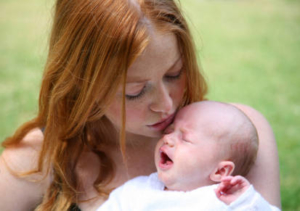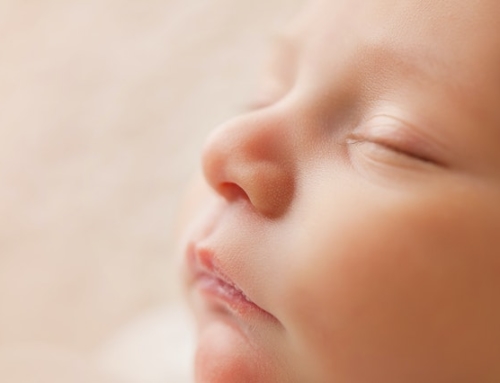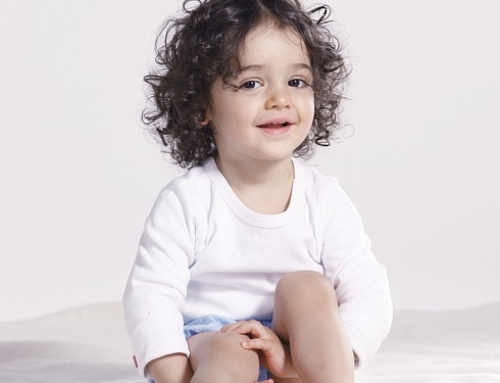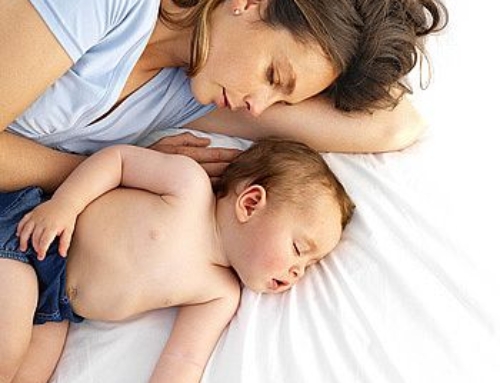With all the press scrambling to tell parents just to leave their kids to cry-it-out at night (see my response to the latest here), I thought I’d just present a few of the many reasons a baby or toddler may be waking and/or crying in the night. And why you should respond.
- They are hungry. Especially younger babies need to nurse frequently and expecting them to sleep long stretches without food is actually starving them and messing with their ability to regulate how much they eat at a given time.
- They are scared. Night is freaking scary. It’s dark and quiet and eerie. I’ve been scared as an adult when left alone to sleep, is it any wonder our babies and toddlers get scared? Especially if they’ve had a bad dream?
- They need you. Especially around the time of separation anxiety, babies will fear that you aren’t coming back and need to see you and be reassured by your presence. This is one of the hypotheses around why so many families see a “sleep regression” between six months and over a year. But regardless, they are experiencing rather severe anxiety and need to be reassured by your presence.
- They are in pain. For some it’s reflux, for some it’s food intolerance, for some it’s gas, for some it’s teething, for some it’s a growth spurt. And there are probably other reasons I’m not thinking of now too. But our babies are growing at an astronomical rate with so much happening to their bodies and it HURTS. And they need comfort.
- They are learning to move in new ways. One that won’t surprise many parents, but researchers are just figuring out that babies who are learning to crawl tend to wake more at night. Reason is currently unknown but it wouldn’t surprise me to know that some of it comes from muscle pain. Have you ever started using muscles you weren’t using before? Yeah, it hurts. Most parents I know report a similar rise in wakings when babe starts walking and I imagine it would be for the same or similar reasons as with crawling.
- They are, quite simply, awake. As frustrating as it can be, many children go through a period of waking for an extended period at night and want to play (quite like we used to sleep as adults – 2 periods of shorter sleep with an extended waking in between in the middle of the night). These often don’t last too long (a few months perhaps), and no one quite knows why, but they are very normal and your child simply won’t go back to sleep, just as you probably wouldn’t at 4pm.
- They peed or pooed. While younger babies may sleep through this (though often not at the start as they are attuned to this), toddlers who are toilet learned or learning will regularly wake for this reason and sometimes the realization they wet themselves can be traumatic and upsetting. They need to be changed and comforted before being able to return to sleep.
- They are too cold. If they are too hot, it’s a danger, but we often forget that babies can be too cold as well. When a child is cold, they will often search for breastmilk (or formula if that’s what they have) to help warm them. But especially nursing babies will seek out the boob as a source of human contact for warmth and food to warm their bellies. Just please, please be careful to not make them too hot. It’s a huge risk factor for SIDS.
At any point do you look at these reasons and think they are cause to leave a child to scream by themselves? Would you like it if you were ignored during any of these times or forced to lie in bed not moving without comfort? I hope that if you’re able to put yourself in the place of your child and imagine what it’s like feeling any of these things and then imagine how your response must seem, you will see there are a lot of things going on that don’t include a child manipulating you or needing to be taught to sleep. What they need is love and responsiveness so please, give them that instead.
You can also read some of the very normal reasons toddlers wake and cry at night here.







Great list! I’ve got one more: It always surprises me that these lists don’t include “thirst.” I don’t know about you, but I wake up thirsty at night ;). Doesn’t seem so far-fetched that the baby might also, especially in hot weather and in times of increased activity.
Yep – I had thought of thirst as part of nursing, but of course with older toddlers that may not be the case!!!
My little boy wakes up thirsty. We just tell him to have a drink of water (he always has his water bottle next to his bed) and he usually goes back to sleep
(he is two and a half)
There are actually more than these reasons (which are very well researched and written, Tracy :-))
To mention a few – sleeping cyles, too much noise… your article is great, it reminds me this great resource I have read couple weeks ago: http://babycennter.com/why-do-babies-cry-in-their-sleep/
I would also like to add- food issues. As a baby is trying new foods and depending if they are BF and mothers diet, many foods can cause sleeplessness or issues that could keep baby awake also. Just my 2 cents 🙂
Agree – I’d considered all food things in the pain because it may be more painful (gas, intolerance, etc.), but it’s true that just new flavours or tastes may do it!
Yes, I was thinking more along the lines of ‘allergenic’ type foods that don’t necessarily cause ‘allergic reactions’. This was a personal search for my 9 month old, so we are exploring affects of dairy, wheat/gluten, certain proteins, etc. 🙂 LOVE YOUR LIST! THANK YOU!!
Tara
My daughter has a dairy allergy that presented in early infancy. While most said just colic and it’ll pass, we knew something was wrong and responded and then cut it out and had a totally different baby 🙂
I do hope, I have told my daughters, that I told my daughters so sorry I am for letting them cry in the night sometimes. Not so much my younger son, it is always good to learn. And I am so proud of my daughters for believing in extended breastfeeding and co-sleeping (and their husbands agreed).
That’s amazing that you’re seeing that knowledge transmit from one generation to the next 🙂 Such a great legacy 🙂
Great Information Tracy!! Thank you again!
Sharing!!
There are some nights I am up with my 21 month old every hour just to go in, pick her up and give her a hug, and put her back down with a soft pat on the bum. They are only little for so long, and even though it can be frustrating some nights, I do not want to look back with guilt if I were to ever let her cry. Although my hubby may argue this on the nights I am up for the 20th time, throwing our covers around and stomping out of my nice warm bedroom!
the only parenting moments I truly regret, are those in which I didn’t follow my gut instincts. a couple of those were letting my child cry longer than he should have. I am thankful it literally was twice, and I knew enough to be able to tell it was a pain cry. When he turned 2, we discovered he has some severe food intolerances. He self-weaned at 17mos due to my pregnancy with his younger sister. A whole year after that weaning, I gave him an ounce of breastmilk I’d pumped but didn’t want to bother freezing. He drank it down, then smacked his lips and called it ‘belly medicine.’ I’m so thankful he was my second child for multiple reasons. I know it’s why he’s as healthy as he is despite his issues.
The growth pains with new actvities like crawling and climbing make sense to me. Even when I was around 10 years (!) old I had terrible nighttime leg aches. One of my parents used to wake when I cried and rubbed my legs until the pain was relieved. I also went into my parents’ room at that age at night, unable to sleep. My mother just said ‘get in’ and I dropped off beside her. We’d just moved and I also then had to be bussed to school – many changes!
I agree. I wish it didn’t have to be written. But, I am glad you did. Arguments that I frequently heard were that I was spoiling my kids and that when they got to school they would be dependent and maladjusted socially.
My kids were never left to “cry it out”. They were breastfed on demand for 20 and 28 months respectively and we were co-sleepers as a family (yes, in the same king sized bed from birth (mother’s have an intense sense of safety around their babies which allow for plenty of precautions to be in place but then again I am preaching to the choir) well past the toddler years. They are now 6 and 8 years old and are quite independent and well adjusted. They excel in school and have plenty of friends. AND, yes, my husband and I had sex regularly. AND no, we did not become intimate in the same bed while the kids were sleeping. For us, having to “sneak” off into another room while they were sleeping added fuel to the fire if you know what I’m saying.
I must add that I was fortunate to have a La Leche Leader who had grown children and had done all of these things. Since these things are not the norm in our culture, I did have reservations about the long term effects of the things my instincts were guiding me to do. I just had one person to speak to me from experience. She assured me that I would experience what I’ve described above as all three of her girls did and were then in high school and college. I am so glad I listened as she was absolutely right.
I love hearing these stories because I think people need to hear personal experiences. While I like and quote the research, nothing reassures a parent more than hearing other parents share their stories, imo 🙂
I find sleep issues to be one of the most confusing parts of parenting. Intuitively, the author seems right on, and I feel for the commenters who talk about their “gut” instincts. However, there does seem to be some support for leaving babies to cry in certain situations. “Would you like it if you were ignored during any of these times or forced to lie in bed not moving without comfort?” Of course not. But parenting decisions have to be made with the child’s best interest in mind, not necessarily what the child likes or doesn’t like. For this reason, I’d like it if the article cited research that backs up its statements, because as the “cry it out” debate shows, so may of us are looking for answers, and science is thing that will provide them.
Lynne, there are tons of research pieces on here providing the research you’re looking for, including the one linked to in the first paragraph of this piece. Here are a few:
https://gku.flm.mybluehost.me/evolutionaryparenting.com/what-you-need-to-know-about-crying-it-out/
https://gku.flm.mybluehost.me/evolutionaryparenting.com/educating-the-experts-lesson-one-crying/
https://gku.flm.mybluehost.me/evolutionaryparenting.com/my-baby-cries-too/
https://gku.flm.mybluehost.me/evolutionaryparenting.com/a-not-so-blind-review-of-the-recent-cio-research/
https://gku.flm.mybluehost.me/evolutionaryparenting.com/does-a-new-study-really-support-leaving-your-child-to-cry/
Happy reading!
Lynne, I have done some research about ‘cry it out’ but I think the point that science can’t handle is that every single child is different. Every parent is different and children/babies cry at different times for different reasons. To me, the point is this. Babies cry because its all the communication they have and its my job as a parent to figure that out and be the other half of the conversation. Which includes LEARNING when my babies are crying just to get their way and also it is my responsibility to help them learn to find comfort in themselves and to begin problem solving even if its a few seconds at a time. I can hear all the ‘science’ i can handle, but babies can’t fit the controlled mold for an issue like this. I believe this is why so many parents go to the extreme of never letting their baby cry at all, ever. It takes lots of time, patience and observance with each individual child/baby so we can best lovingly equip our kids gently, each step of the way. I think science can only get us so far and the rest is up to how well we as parents are at problem solving and love – appropriately. Its just too individual. But I think this site is well referenced and greatly appreciate all the time put in. 🙂
Tara, you are so right that every child is different as well as every parent and that science does not account for all variables; points well made. My interpretation….When I heard crying from my babies, I translated that to “Hey Mom, I really need help with this and I don’t know how else to tell you.” I think that is what the point of this article is. The norm in our culture is to think that all babies are out to manipulate and therefore, we must control by only feeding on our schedule, leaving the child to cry if it happens outside of the schedule and to not pick them up too much for fear of spoiling. I heard this from countless concerned people in my life who didn’t understand what I was doing. Choosing to not let our babies cry it out does not translate to our babies never cry because we go to extraordinary measures to wait on them hand and foot. It does translate to I believe that when my baby cries s/he is telling me something that I need to listen to and respond. At the beginning this is a lot, especially with the first, because as a mom I didn’t know the non-verbal signs (fist sucking = I’m hungry.) that communicated the same message long before the cry. Even at night, my babies would start squirming and making little noises when they were hungry or needing a diaper change long before they resorted to crying thus they were close by me so that I could “hear” these and respond long before the crying….thus we all slept much more. From my perspective, the importance of the science behind it lies in the credibility it gives to this “alternative” method which helps when facing a sea of family and friends who think you are doing your baby a huge disservice and aren’t afraid to tell you why and who aren’t at all receptive to anecdotal evidence from friends who choose to do the same.
[…] something like bed-side cosleeper. Sleep training is a frequently debated topic; understand that there are reasons babies wake at night. Understand those reasons and the potential harm of sleep training before undertaking efforts to […]
Listen up people, If a child basic needs are not met from birth to 5 yrs old they can have LIFE LONG consequences on their ability to learn! It i known as ADD, ADHD, and many other things these days.
http://www.worldpublicunion.org/2013-03-27-NEWS-inventor-of-adhd-says-adhd-is-a-fictitious-disease.html
The alarmed critics of the Ritalin disaster are now getting support from an entirely different side. The German weekly Der Spiegel quoted in its cover story on 2 February 2012 the US American psychiatrist Leon Eisenberg, born in 1922 as the son of Russian Jewish immigrants, who was the “scientific father of ADHD” and who said at the age of 87, seven months before his death in his last interview: “ADHD is a prime example of a fictitious disease”
Educate ……
I used to think that as well, until I started looking into the field of neuroscience and discovering that these things we are doing to babies on a widespread scale, like CIO or an infant in the presence of stressed parents and such, are actually causing at a young age to have to develop defense coping mechanisms to cope with the stress… one example of this coping is to “tune out.” If the infant has to tune out often enough then this “state” of tuning out becomes and ingrained “trait.” So what is actually normal for temporary defense becomes a solid long-term trait because our lifestyle stresses as parents are so ongoing.
I just read research that suggests colic crying may be caused by migraines! So sad. Crying babies should not be ignored.
Why is it the fact that babies cry because they need to urinate is never mentioned? Babies instinctually do not want to pee on themselves nor their food much less wear their biological waste all night?
Also, babies may cry because of the pain and burn of chemically made disposable diapers against their skin? Or the diaper rash creams designed to allow them to wear their liquid biological waste for hours on end with the hope of not getting rashes (how is that turning out?). Or, the store bought wipes and the chemicals in them irritating their skin?
Learn about EC.
http://childdrivenlearning.wordpress.com/ec-infant-potty-training/
Also, don’t forget, especially for baby boys given that 50% are still experience genital mutilation, circumcision, that they could be having nightmares from their traumatic partial penis amputation as well as feeling severe pain and discomfort that will take months, if not years, to scar over. Imagine a fingernail amputation where the fingernail never grows back. I doubt it would ever not be sensitive to some degree as the nail bed was never meant to be exposed. And, the head of the penis is not only raw bloody would at first, even once the skin has “healed” visually, it would forever be extra sensitive to the urine constantly burning that exposed flesh.
It so saddens me how many mothers have told me they controlled cried or sleep trained their babies at 6 months old only to find out a few months later they either had grommits/ear issues and the big one i hear all time…food intolerances…! and you just see that lost look in that toddlers eyes like they have experienced stress and feelings of abandonment far too soon.
[…] https://gku.flm.mybluehost.me/evolutionaryparenting.com/reasons-babies-cry-and-wake-at-night/ […]
Hello! I could have sworn I’ve been to this site before but after reading through
some of the post I realized it’s new to me. Nonetheless, I’m definitely
delighted I found it and I’ll be bookmarking and checking
back frequently!
I’ve just read some research that said that children need milk during the nights of the first three years a they are growing so rapidly! otherwise they are getting starved of vital nutrition and are more prone to other illnesses later. three years is a long time to go without a full nights sleep, but we are 20 months and going strong (at 5 feeds a night) and I’m excited to have three years of night feeding as a goal 🙂
I agree with Tricia, and the author. We can say what we want in terms of each parent has to decide what’s best, etc, etc, but there is plenty of research – tons of it in places you wouldn’t know to look because it’s not mainstream. Look at research in developmental psychology and neuroscience where they actually look at developing brains and how the stress response adversely affects it. When babies are under stress (Ie, crying alone), just as if us adults are under stress, the stress hormone cortisol is released. It is absolutely known, not debateable… not controversial, BUT KNOWN now that extended periods of cortisol flooding the developing brain shrinks various brain structures from that point on, and damages connections from that point on. As pointed out above by someone, the rise in all these diseases like asthma, ADD, etc, and behavioral and psychological disorders over the past 30-50 years, AND more troublesome behaviors by teens and adults in general in society than ever before, is directly correlated to the rise in the western capitalism which stresses parents (especially mothers who used to mainly stay home more with children) to have to work and/or return to work soon after birth resulting in trying to find techniques to sleep better. So, out of this comes an entire field of “psuedo-experts” with zero credibility based on evidence, on convincing us to IGNORE our instincts and sell us on the fact that we should do this stuff because it’s “good for the baby”, when really it’s so we don’t feel guilty about ignoring our instincts – which is to pick up a crying baby. The reality is that it doesn’t matter what we think or what a “sleep expert” sells us on believing, the FACT is scientifically known that the stress response damages the brain. There’s no debate, there’s just an entire culture and society of us wanting to ignore facts and not feel horrible about what we are doing on such a widespread massive scale. It’s frightening.
[…] a bad dream, being poorly and more. Evolutionary Parenting has summarised some of the Reasons Babies Cry and Wake at Night and Reasons Toddlers Wake (and Sometimes Cry) At […]
[…] There are so many reasons a baby may be crying. […]
I find that it’s also combinations, of the above, or if they are sick. Whenever my girls wake up they would always want a bottle. My second daughter would always want a bottle whenever she would wake up, and if I didn’t have enough she would get VERY angry. Long story short I think there is also a bit of conditioning, and comfort from that repetition.
My one month daughter is having habit to cry at nignt without any reason. Her timing is between 10:30pm to 11 0r 12 at night. We try to calm her but she cry cry and cry a lot. Even her diaper is dry and in full tummy also.
We don’t know the reason. She cry with tears. We also get upset. Please tell us the reason.
I can’t tell you the reason from this. I can work with you during a consultation to find out more to see if we can’t figure it out though. Just check the link to consultations on the main page.
[…] Reasons baby’s cry and wake at night ‘Slaap je al door?’ van Celia Ledoux […]
[…] • https://gku.flm.mybluehost.me/evolutionaryparenting.com/reasons-babies-cry-and-wake-at-night/ […]
[…] https://gku.flm.mybluehost.me/evolutionaryparenting.com/reasons-babies-cry-and-wake-at-night/ […]
[…] Il est normal, pour le développement du bébé, de se réveiller la nuit au moins tout au long de la première année et peut-être encore un peu plus longtemps. Au début, les bébés se réveillent surtout la nuit pour avoir du lait maternel (ils essaient de doubler leur poids de naissance entre les quatre et six premiers mois; ils ont besoin de se nourrir souvent!). Plus tard, les bébés et peuvent se réveiller à cause de la faim, de la solitude ou de l’une des raisons qui nous poussent à nous réveiller nous-mêmes à l’âge adulte: avoir besoin de boire un verre, aller aux toilettes, avoir trop chaud ou trop froid, avoir mal aux dents, avoir un mauvais rêve, être mal et plus. Evolutionary Parenting a résumé certaines des raisons pour lesquelles bébés et nourissons pleurent et se réveillent la nuit. […]